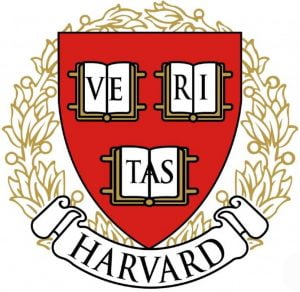I want to thank the troll who gave me an epiphany in an argument about affirmative action last weekend. Nah, not the one he was trying for, about how much fairer it would be to have a “purely meritocratic” system for college admissions. But in thinking about who gets in despite not really having shown what they could accomplish all on their own, I realized… that’s me. It’s kids like me who benefit from society’s decision to assume that we will go on to do well if given a chance.
I grew up white and middle class in a town with a national award-winning public school system, with two college-educated parents, including one who went to Harvard. Studied hard, got good grades, high SAT scores, even managed to work a part-time job to save for college while doing all that plus extracurriculars. OK, yay me, clearly I have a not inconsiderable quantity of “merit.”
But then if there’s a kid who grew up going to a crappy school, often without breakfast in his tummy, without a parent capable of tutoring him in physics so he’d scrape a B as I did, with black or brown skin that made his teachers statistically more likely to punish him harshly than I ever was — if that kid gets grades and SAT scores anywhere close to what I did, I think that shows way more “merit” in the classic Horatio Alger American-Dream narrative than I ever did.
I got a pretty comfy ride to the top of the hill and never truly had to break a sweat. Yeah, I had to do the actual work, but everything and I mean *everything* was there to help me do it. Kid who fucking clawed his way *almost* to the top gets wayyyyy more credit in my book. How do you define “pure meritocracy” in that case?
And of course my own example is even more clear-cut, since Harvard gives nobody-knows-how-much-but-a-lot of preference to “legacies,” children of Harvard grads. But really, that’s just ancestral advantage made explicit. Even aside from the legacy concept, the idea of some objectively absolute “pure meritocratic” standard tends in reality to hold the biases and advantages of the people and systems already in power at the time of the creation of the definition.
So, before we make the AAPI and African-American and Latinx and Native and LGBTQ and with-disabilities kids duke it out for the scraps of a system that is geared to help kids like me excel, let’s be clear: *I* am the affirmative action admit. I am the one who never really demonstrated what she could achieve through her own unaided effort. And isn’t that the objection to affirmative action? That it boosts people who wouldn’t otherwise qualify, vs. others who are really harder working and more deserving?
Any solutions to the imperfect system of affirmative action need to recognize our society’s fundamental unfairness in creating a real system of defining merit. Alas, here’s the part where I admit that I don’t have a brilliant plan to propose instead. I just think it’s crucial to truly see the factors going into the situation before we try to decide on the solutions. Trying to live my Personal Rule #3: See clearly through kind eyes, speak clearly with true voice. After all, I went to Harvard. Our motto is supposed to be Veritas: Truth.
